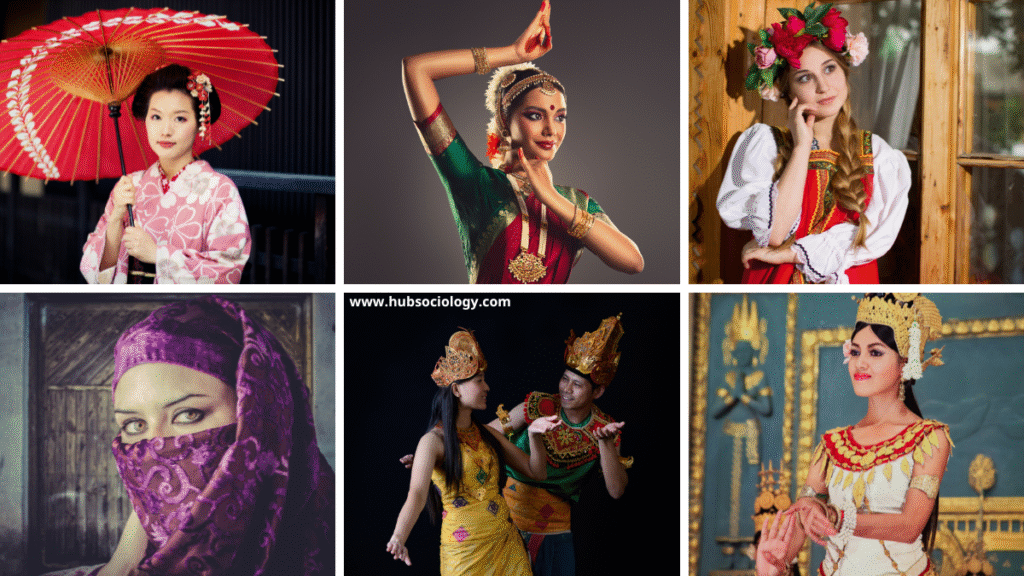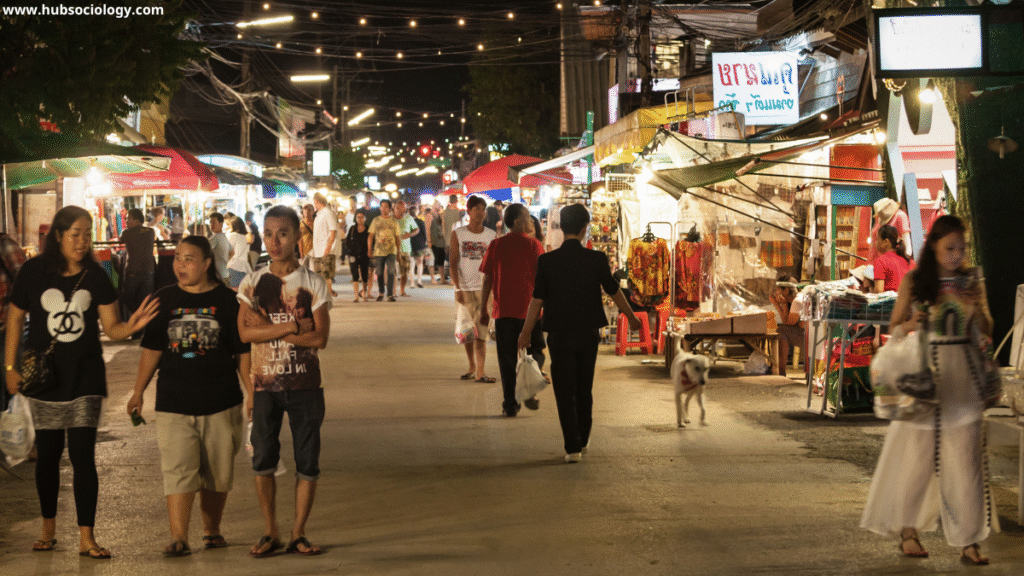Introduction
Postcolonial sociology is a critical approach that examines the enduring legacies of colonialism, imperialism, and Eurocentrism in social theory and practice. While mainstream sociology has largely been shaped by Western intellectual traditions, postcolonial sociology seeks to decenter these narratives by incorporating perspectives from formerly colonized societies, particularly in Asia.
Asia, with its diverse histories of colonization, resistance, and decolonization, offers a rich ground for rethinking sociological concepts such as power, modernity, identity, and globalization. This article explores postcolonial sociology from Asian perspectives, highlighting key themes, theoretical contributions, and contemporary debates.

1. Colonialism and the Making of Asian Societies
1.1 Colonial Histories and Societal Transformations
European colonialism in Asia (e.g., British rule in India, French in Indochina, Dutch in Indonesia) restructured local economies, political systems, and cultural practices. Colonialism introduced new administrative hierarchies, land ownership systems, and labor exploitation, which had lasting effects on postcolonial societies.
Sociologists like Partha Chatterjee (India) and Syed Hussein Alatas (Malaysia) argue that colonialism was not merely an external domination but also a process that reshaped indigenous social structures. For instance, the British “divide and rule” policy in India reinforced caste and religious divisions, which continue to influence contemporary politics.
1.2 Knowledge Production and Eurocentrism
Postcolonial scholars critique the Eurocentric bias in classical sociology. Thinkers like Marx, Weber, and Durkheim developed theories based on European historical experiences, often marginalizing non-Western realities.
Syed Farid Alatas (Singapore) emphasizes the need for “alternative sociologies” that draw from Asian intellectual traditions (e.g., Ibn Khaldun’s theories of social change, Confucian social ethics). The dominance of Western sociology in academic institutions has led to the neglect of indigenous epistemologies.
2. Decolonizing Sociology: Asian Contributions
2.1 Subaltern Studies and the Critique of Elite Histories
The Subaltern Studies Group, led by scholars like Ranajit Guha and Dipesh Chakrabarty, emerged in India to challenge elite-centric narratives of history. They focused on the agency of marginalized groups—peasants, tribal communities, and lower castes—in anti-colonial struggles.
This approach influenced sociological methods by emphasizing oral histories, vernacular sources, and grassroots movements as legitimate forms of knowledge.
2.2 Dependency Theory and Global Inequalities
Asian sociologists have contributed to critiques of global capitalism. Samir Amin (Egypt) and Andre Gunder Frank (though Western, his work was influential in Asia) argued that postcolonial nations remain economically dependent on former colonial powers due to unequal trade relations and neoliberal policies.
In East Asia, scholars like Kuan-Hsing Chen (Taiwan) examine how Cold War geopolitics shaped national identities and development models in countries like South Korea and Taiwan.
2.3 Postcolonial Feminism and Intersectionality
Asian feminist sociologists, such as Chandra Talpade Mohanty (India/USA) and Aihwa Ong (Malaysia/USA), critique Western feminism for universalizing women’s experiences. They highlight how colonialism, nationalism, and globalization create unique gendered oppressions for Asian women.
For example, the exploitation of female factory workers in export-processing zones (e.g., Bangladesh, Philippines) reflects both global capitalism and patriarchal structures.
3. Contemporary Issues in Postcolonial Asian Sociology
3.1 Nationalism and Postcolonial Identity
Postcolonial Asian states often constructed national identities in opposition to colonial pasts. However, these identities sometimes reinforced ethnic hierarchies (e.g., Sinhala nationalism in Sri Lanka, Hindutva in India).
Sociologists study how colonial-era classifications (e.g., racial hierarchies in Malaysia, caste in India) persist in postcolonial governance and social policies.
3.2 Migration and Diaspora Studies
Asian diasporas (e.g., Indian, Chinese, Filipino) are shaped by colonial labor migrations (indentured workers, coolie trade) and contemporary neoliberal migrations (IT workers, domestic helpers).
Scholars like Brenda Yeoh (Singapore) analyze how migrant workers navigate citizenship, racism, and transnational families in Gulf countries, the US, and Europe.
3.3 Development and Environmental Justice
Postcolonial critiques of development question Western models of modernization. Vandana Shiva (India) critiques the Green Revolution for displacing traditional agriculture and increasing farmer indebtedness.
Similarly, environmental sociologists study how colonial land-use policies (e.g., deforestation in Indonesia, dam projects in India) continue to displace indigenous communities.

4. Challenges and Future Directions
4.1 The Western Academy and Intellectual Dependency
Many Asian sociologists work within Western academic institutions, raising questions about intellectual dependency. There is a growing movement to establish autonomous sociological traditions in Asia, such as:
- “Asia as Method” (Kuan-Hsing Chen) – using Asian experiences to theorize globally.
- Islamic sociology (Syed Farid Alatas) – integrating Muslim intellectual heritage into social theory.
4.2 Digital Colonialism and Neoliberalism
New forms of domination, such as digital colonialism (control of data by Western tech giants) and neoliberal policies imposed by international financial institutions, require fresh postcolonial critiques.
Conclusion
Postcolonial sociology from Asian perspectives challenges the universal claims of Western social theory and offers alternative frameworks for understanding power, identity, and globalization. By centering marginalized voices and indigenous knowledge systems, it enriches sociological inquiry and fosters more inclusive methodologies.

As Asia continues to rise in global influence, its sociological contributions will play a crucial role in shaping postcolonial thought worldwide. Future research must further bridge local experiences with global theoretical debates, ensuring that sociology remains a truly pluralistic discipline.
Do you like this this Article ? You Can follow as on :-
Facebook – https://www.facebook.com/hubsociology
Whatsapp Channel – https://whatsapp.com/channel/0029Vb6D8vGKWEKpJpu5QP0O
Gmail – hubsociology@gmail.com
Topic Related Questions
5-Mark Questions (Short Answer)
- Define postcolonial sociology and explain its significance in Asian contexts.
- How did colonialism impact social structures in India? Give two examples.
- What is Eurocentrism in sociology, and how does postcolonial theory challenge it?
- Name two Asian postcolonial sociologists and their key contributions.
- What is the Subaltern Studies Group, and why is it important in postcolonial sociology?
- How does postcolonial feminism differ from Western feminism? Provide an example.
- Briefly explain “Asia as Method” in sociological research.
- What role did colonial knowledge systems play in shaping Asian societies?
- How does dependency theory explain economic inequalities in postcolonial Asia?
- What is intellectual dependency, and how does it affect sociology in Asia?
10-Mark Questions (Brief Essay/Detailed Answer)
- Discuss Partha Chatterjee’s critique of nationalism in postcolonial India.
- Analyze how colonialism reshaped gender roles in any one Asian society.
- Compare Western sociology and postcolonial sociology in terms of methodology.
- Examine the contributions of Syed Hussein Alatas to the critique of Eurocentrism in social sciences.
- How does Samir Amin’s dependency theory apply to contemporary Asian economies?
- Discuss the impact of neoliberal globalization on labor migration in postcolonial Asia.
- Explain the concept of “subaltern agency” with reference to peasant movements in Asia.
- How has environmental sociology in Asia been influenced by colonial land-use policies?
- Critically assess the idea of “decolonizing sociology” in Asian academic institutions.
- What are the key arguments of postcolonial feminism in Asia? Provide examples.
15-Mark Questions (Long Essay/Critical Analysis)
- “Postcolonial sociology challenges the universal claims of Western social theory.” Discuss with reference to Asian perspectives.
- Critically examine the impact of British colonialism on caste and class structures in India.
- How have Asian intellectuals contributed to postcolonial critiques of development and modernization?
- “The Subaltern Studies Group revolutionized the study of history and sociology in South Asia.” Elaborate.
- Analyze the role of colonial and post-colonial nationalism in shaping ethnic conflicts in Sri Lanka or Malaysia.
- How does post-colonial sociology reinterpret globalization from an Asian standpoint?
- Discuss the intersection of caste, class, and gender in postcolonial India using sociological theories.
- “Asian diasporas are a product of colonial and neoliberal labor migrations.” Critically evaluate.
- Compare Islamic sociology and Western sociology in understanding postcolonial Muslim societies.
- Can sociology in Asia overcome intellectual dependency on the West? Discuss possible pathways.
Additional Higher-Order Questions (For Research/Debates)
- How does digital colonialism affect knowledge production in Asia today?
- Is decolonial sociology possible within Western academic frameworks?
- How can indigenous knowledge systems be integrated into mainstream sociology?
- What are the limitations of post-colonial theory in explaining contemporary Asian societies?

4 thoughts on “Postcolonial Sociology: Asian Perspectives”